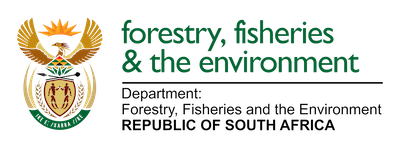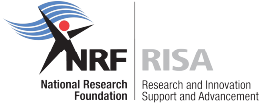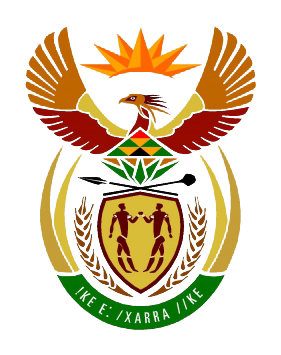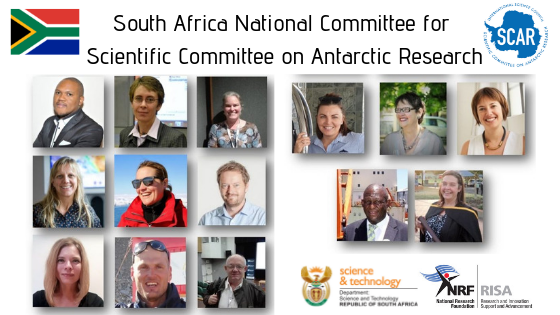
by Fishgate@sanap | Mar 14, 2019 | Announcement, Antarctica, Marion Island, News, Research, SANAP, Science, Southern Ocean
South Africa has been involved in Antarctic research since the geophysical year of 1957. The first 10 years of South Africa’s science and research in the Antarctic is highlighted in an article by DG Kingwell, at that stage the secretary of the South African Scientific Committee for Antarctic Research (SASCAR).
The Antarctic Research of South Africa is part of The International Science Council (ISC), South Africa.
South Africa is a national member of ISC through the National Research Foundation (NRF) and the Human Sciences Research Council (HSRC) supported by the Department of Science and Technology (DST). The South African ISC -Secretariat serves the scientific community and the ISC scientific unions and affiliates to which South Africa adheres. The SA ISC Secretariat provides support and organisational services for the ISC National Board of SA, and to the SA ISC National Committees to advance South Africa’s position in international platforms. The total membership of these committees is in excess of 200 scientists. Approximately 100 South Africans serve on ICS-related commissions and working groups. The ISC activities in South Africa are focused on the following principals:
- Science-for-policy: Stimulate and support national and international scientific research and scholarship, and to communicate science that is relevant to national and international policy issues;
- Policy-for-science: Promote developments that enable science to contribute more effectively to major issues in the national and international public domain;
- Science-for-society: Stimulate science engagement with society;
- Scientific freedom and responsibility: Support the free and responsible practice of science;
- Adherence: Support committees through payment of ISC membership dues.
South Africa Science and Research is also part of the Scientific Committee on Antarctic Research (SCAR) where the committee members will represent South Africa at SCAR meetings.
The new National Committee has been announced in a letter by Tracy Klarenbeek – Professional Officer, Knowledge Advancement and Support (KAS) and their first meeting took place at Stellenbosch University on 6 March 2019.
Dear SANAP Community,
It gives me great pleasure in sharing the names of the individuals selected to represent us all at SCAR. Of course, these individuals will rely heavily on inputs from the entire community, so I sincerely hope that you will be available to support them in their endeavours. Members of the community that are not an the steering committee are still strongly encouraged to participate in SCAR and SCAR-related activities. The DST and the NRF are planning a follow-up meeting with the whole community, hopefully by the middle of the year (academic and other schedules permitting), so as to give feedback on a number of initiatives ongoing that will possibly impact on us all, including plans for current and future SA participation in SCAR. We look forward to seeing you there.
The final list is below, the details of which will be communicated to SCAR in due course. Professor Bettine van Vuuren was nominated as the Committee Chair, Tracy Klarenbeek as Vice-Chair and Dr Gilbert Siko representing the Department of Science and technology.
Life Sciences Standing Committee of SCAR
- Thulani Makhalanyane (South African Representative)
- Bettine van Vuuren
- Anne Treasure

Physical Sciences Standing Committee of SCAR
- Sandy Thomalla
- Sarah Fawcett (South African Representative)
- Stefan Lotz

Geosciences Standing Committee of SCAR
- Christel Hansen
- Werner Nel
- Geoff Grantham (South African Representative)

Social Sciences and Humanities Standing Committee of SCAR
- Anché Louw
- Ria Olivier (South African Representative)
- Charne Lavery

Please give this committee your support in their efforts to take South African science to the world via SCAR.
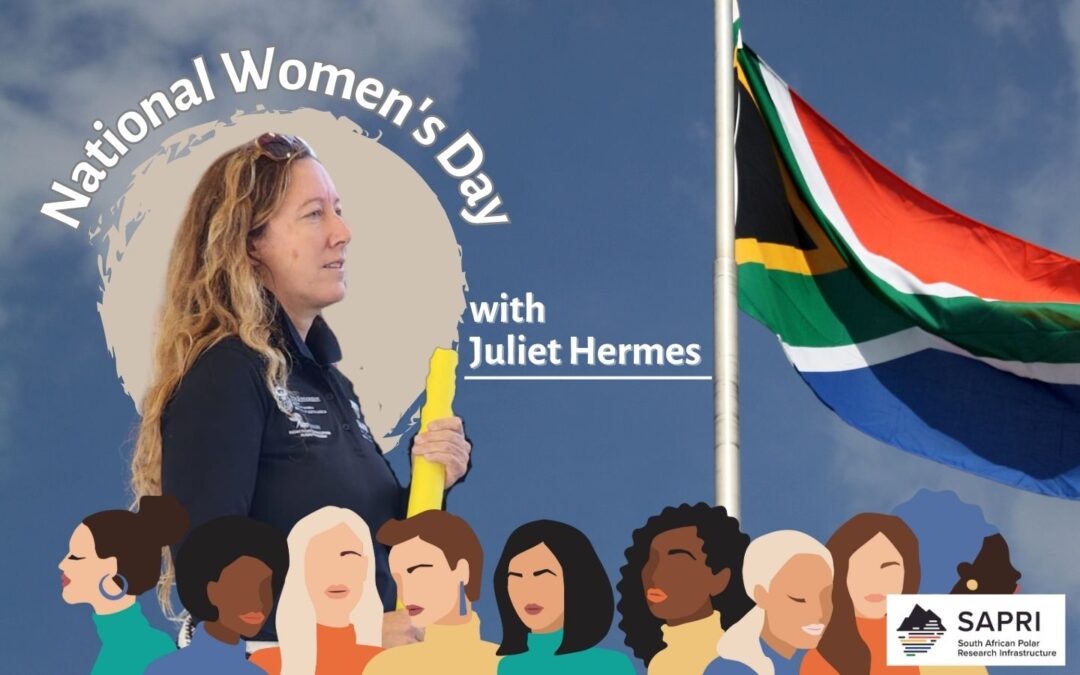
by Ria Olivier | Aug 9, 2023 | Commemorative Days, Important Dates, News, Research, SA Polar Research Infrastructure, SAPolarRI, SAPRI, Science, Southern Ocean, Women in Science
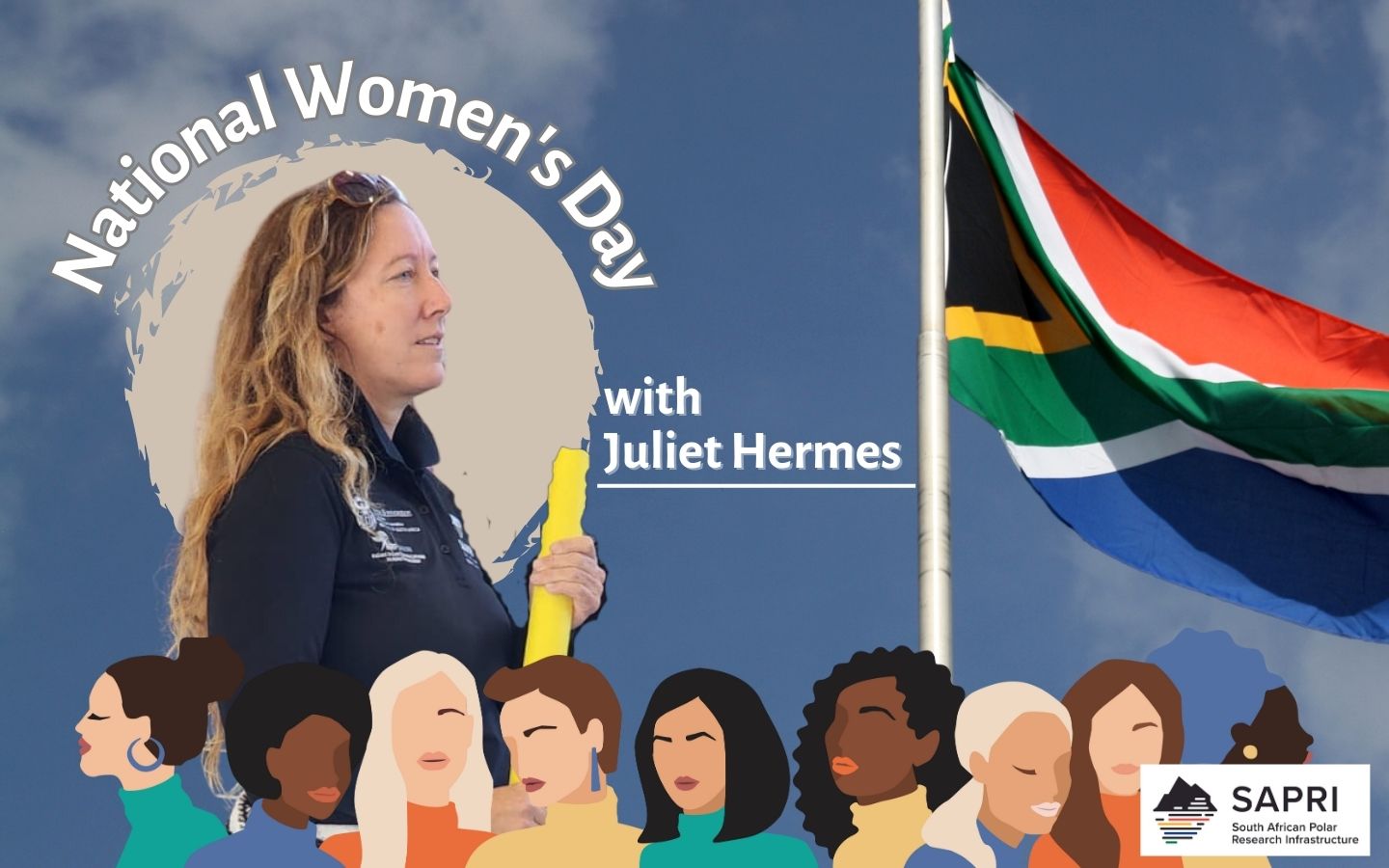
Prof Juliet Hermes is the Manager of the South African Polar Research Infrastructure (SAPRI), the Manager of the NRF- SAEON Egagasini Node, Honorary Professor at the Nelson Mandela University (NMU), Professor at the University of Cape Town (UCT) and heavily involved in a number of international programs and committees where she represent the fantastic work being done in South Africa and Africa as a whole (see list below). She is a passionate physical oceanographer who loves the ocean, a mom of two boys and her life is guided by the words of late Nelson Mandela:
“What counts in life is not the mere fact that you have lived. It is what difference we have made to the lives of others that will determine the significance of the life we lead.”
She makes a difference in her working environment through her collaborative nature and approachable demeanor.
“At the NRF- SAEON Egagasini Node I am supported by an incredible team consisting of biodiversity, modelling, observing and engagement specialists and of course administrative support. Together we advance our understanding of the marine offshore environment and our ability to detect, predict and react to global change through long term observations, modelling and research data”.
-
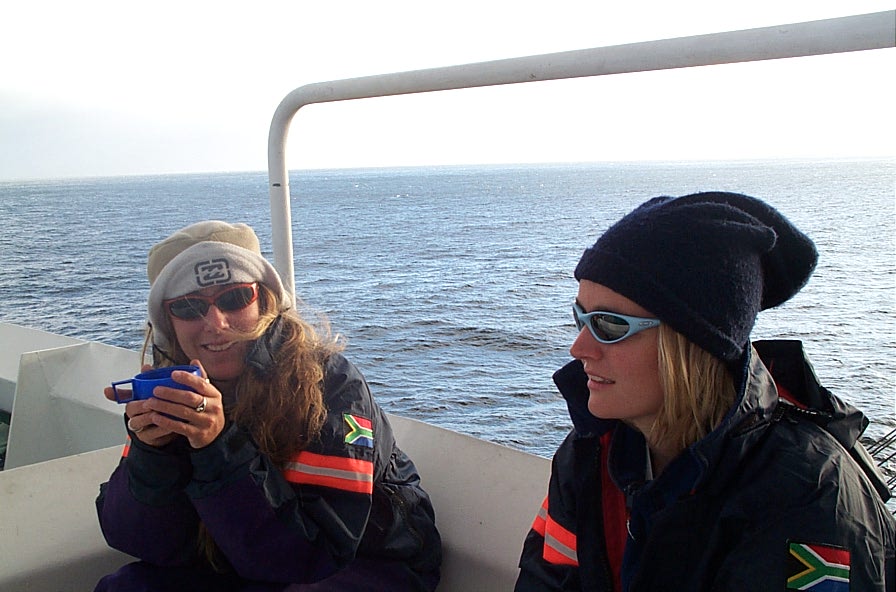
-
Juliet (left) on board the S.A. Agulhas en route to Marion Island.
-
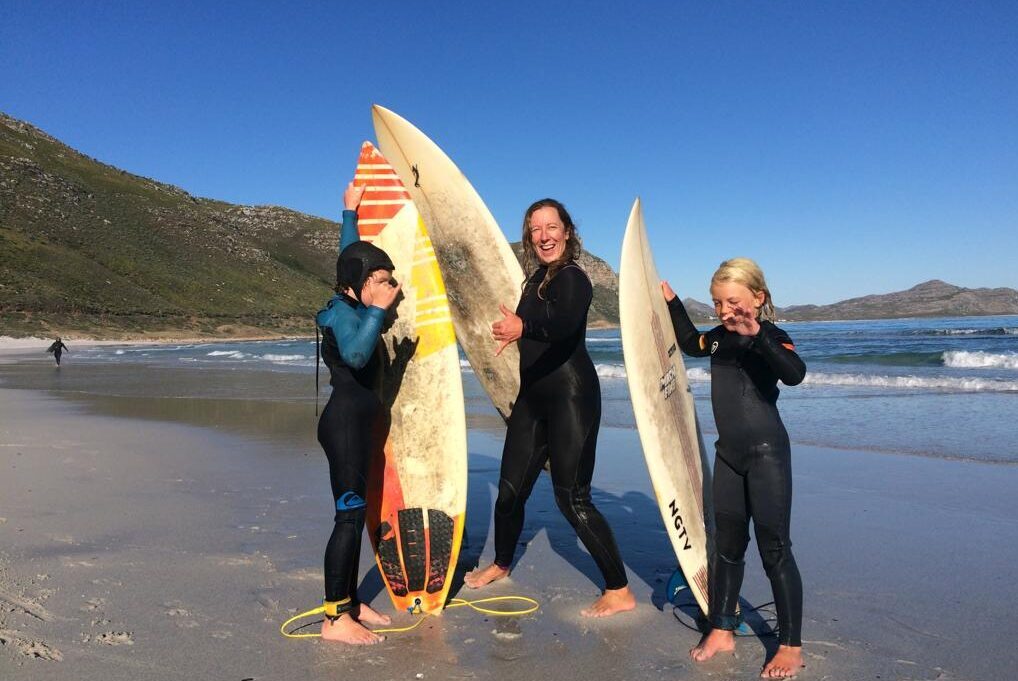
-
Juliet and her two boys.
From Interim SAPRI Manager to SAPRI Manager
Juliet was initially involved in SAPRI as the South African Environmental Observation Network (SAEON) institutional champion and worked closely with Dr Tammy Morris and Prof Marcello Vichi in writing the original proposal and following business plan for SAPRI. As the manager of the NRF-SAEON Egagasini Node, which hosts the SAPRI LTO-Land and LTO-Ocean integrated facilities (IFs), she was made the interim manager of SAPRI in November 2021. Following discussions with the National Research Foundation (NRF), Department of Science and Innovation (DSI) and Department of Forestry, Fisheries and the Environment (DFFE) this role was then made permanent on the 1st of April 2023.
“It is a team effort with SAPRI and SAEON staff working closely together and the community also supporting us through the different user fora”.
Read more about the SAPRI IFs here.
Role of the SAPRI Manager
The role will change over time, the first 3 years will be overseeing the implementation of SAPRI – setting up the governance, employing the staff, overseeing the user fora groups, reporting to the advisory committees, the NRF and the DSI, working with DFFE, the South African National Antarctic Programme (SANAP) and the Antarctic Legacy of South Africa (ALSA) to integrate SAPRI and to maximize marine and polar sciences in South Africa. Understand the stakeholder needs and support the current community, whilst driving transformation and bringing in new stakeholders in terms of disciplines and institutes. A key aspect is also ensuring the sustainability of long term observations in the marine and polar space, and resolving long going issues between science and logistics.
Once the implementation has happened the role will be more in overseeing the operations, sourcing additional funding, driving transformation and continuing to work closely with DFFE and SANAP.
-
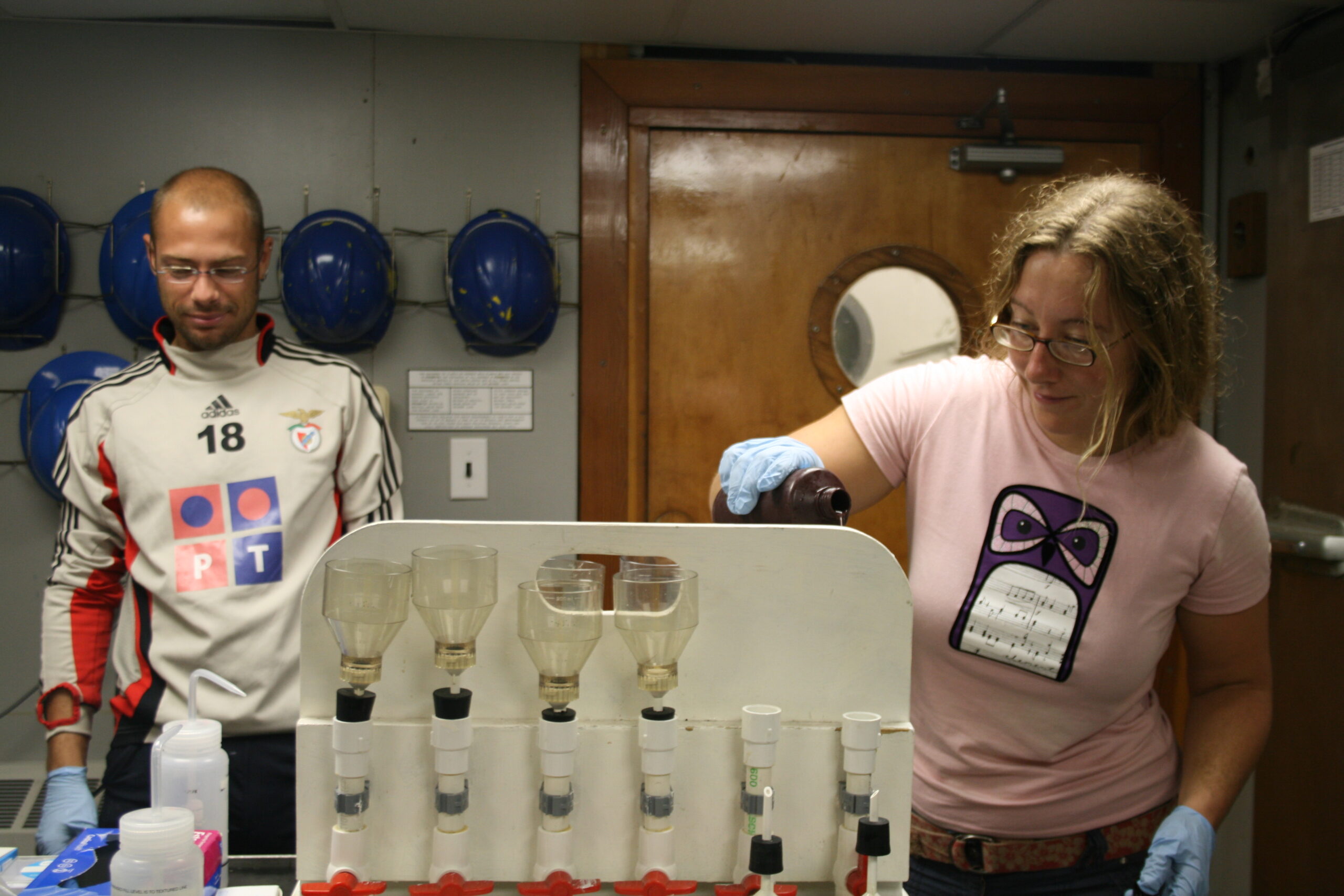
-
On an exchange visit to the Bermuda long-term observing station (BIOS).
-
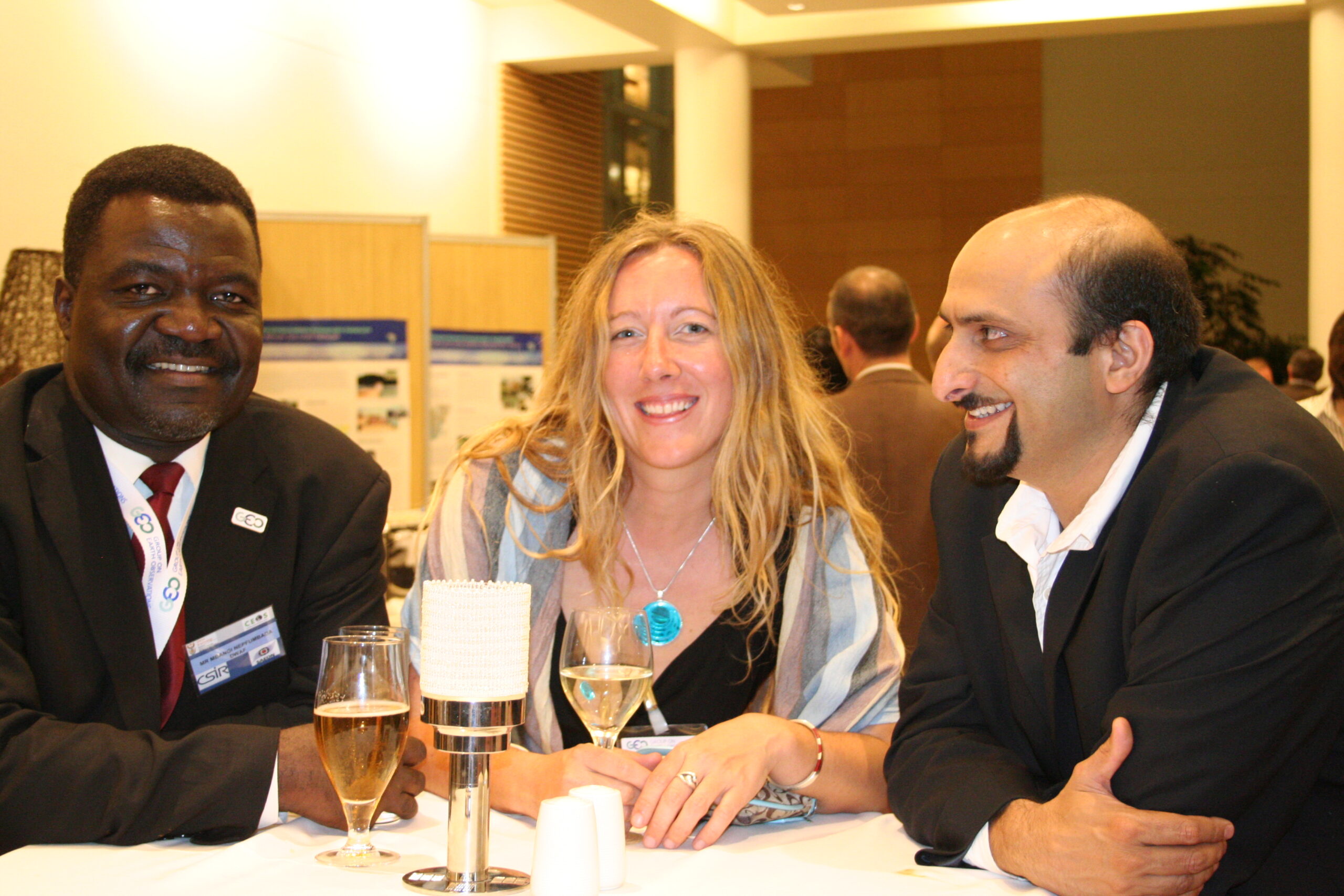
-
Geo summit (2007).
-
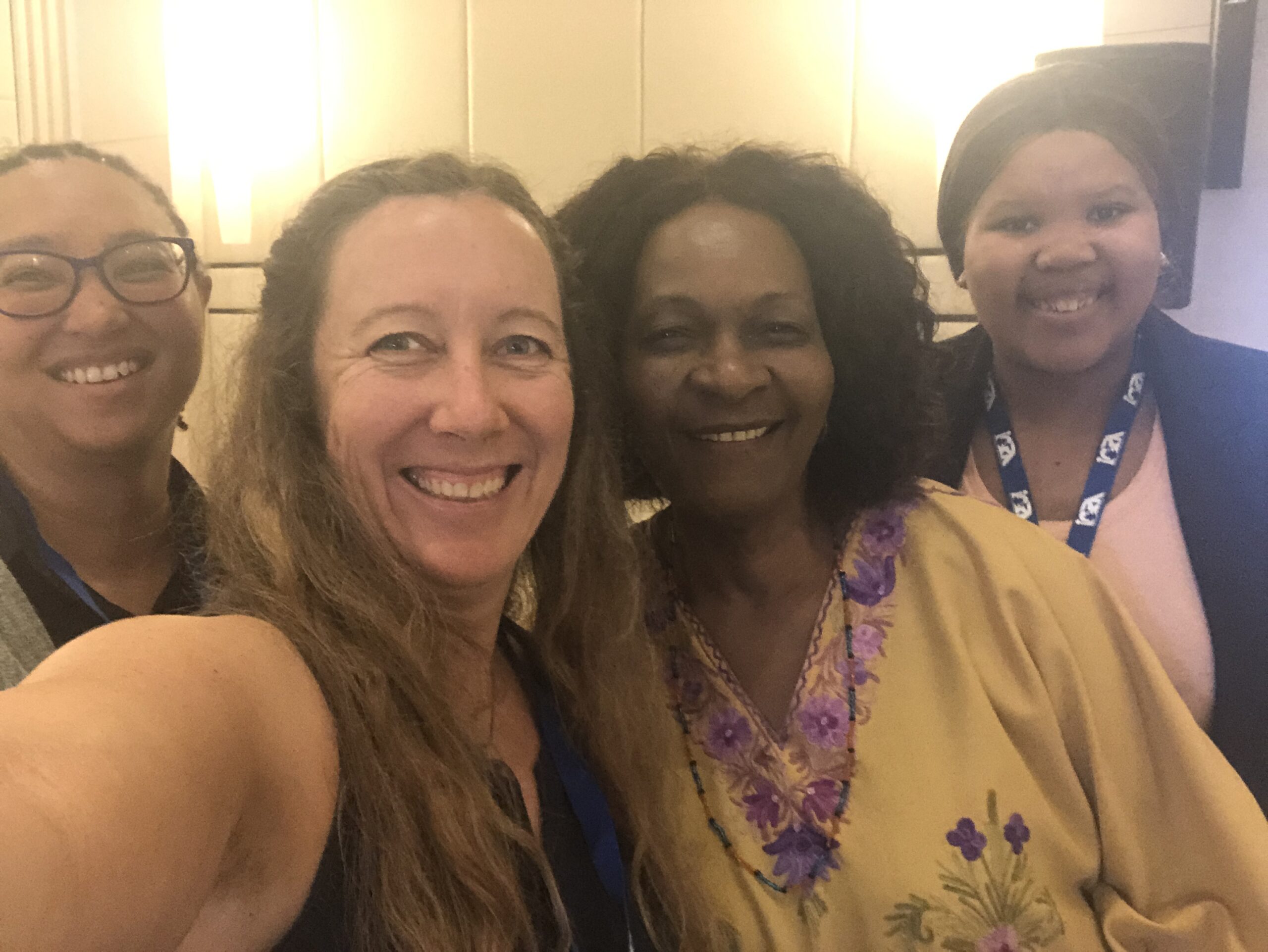
-
Juliet and collogues at the Indian Ocean Rim Association (IORA) High level strategic dialogue on IORA’s 25 years.
My expectations for SAPRI are for it to fulfill its vision: “to enable balanced and transformed research growth across the multiplicity of marine and polar disciplines, and to maintain and further expand the world-class, long-term observational research infrastructure and datasets already established within the South African marine and polar research environment.”
Juliet represent South Africa (and Africa) in the following international programs and committees:
- Ocean Decade task force to implement the Africa roadmap (read more here).
- Chair of the Climate and Ocean – Variability, Predictability, and Change (CLIVAR) Indian Ocean Regional Panel.
- Chair of the Indian Ocean Rim Association Academic Group (IORAG) and the node hosts the South African chapter for this.
- Ocean Decade working groups (on capacity development and adaptation).
- Executive committee member of International Association for the Physical Sciences of the Oceans (IAPSO).
- Vice chair on the Observation Coordination Group.
- Work closely with The Global Ocean Observing System for Africa (GOOS for AFRICA).
Read more: Second professorship for SAEON’s Juliet Hermes

Images and text supplied by Juliet Hermes.
Anche Louw, South African Polar Research Infrastructure, 09 August 2023.
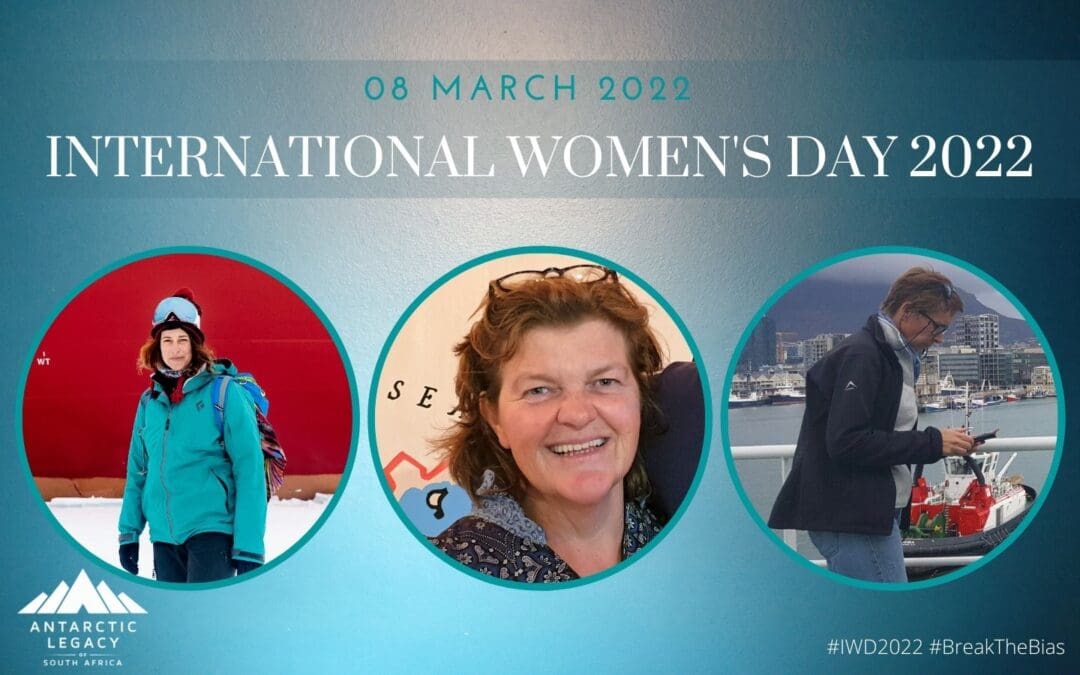
by Ria Olivier | Mar 8, 2022 | Engineering, Genomics, International Days, News, Oceanography, Research, SA Agulhas II, Southern Ocean, STEM, sub-Antarctic, Women in Science
The theme for this year’s International Women’s Day is “Break the Bias”.
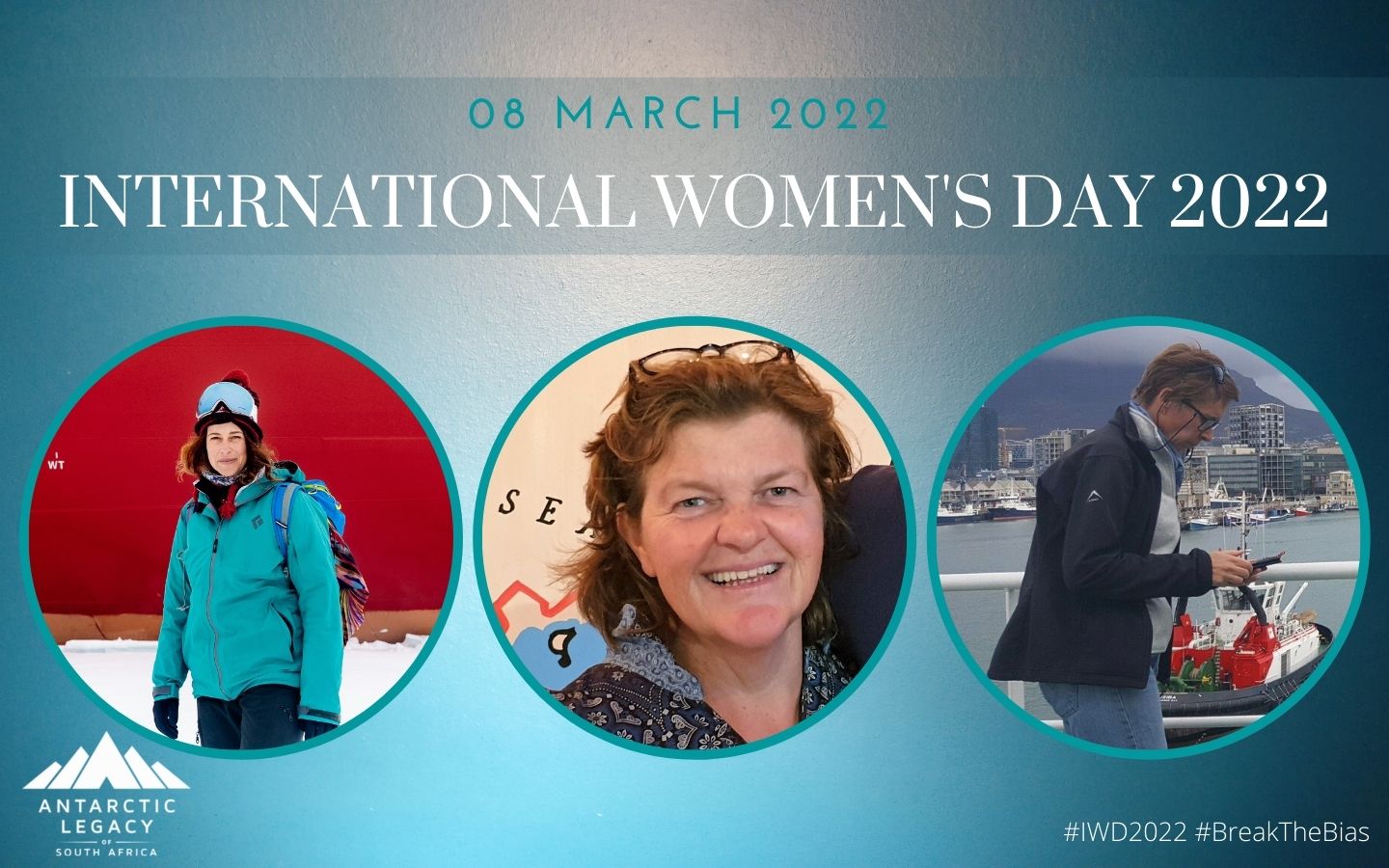
This year we are featuring three inspiring women within the South African National Antarctic Programme. They are leaders in their fields and represent South Africa on an international level.
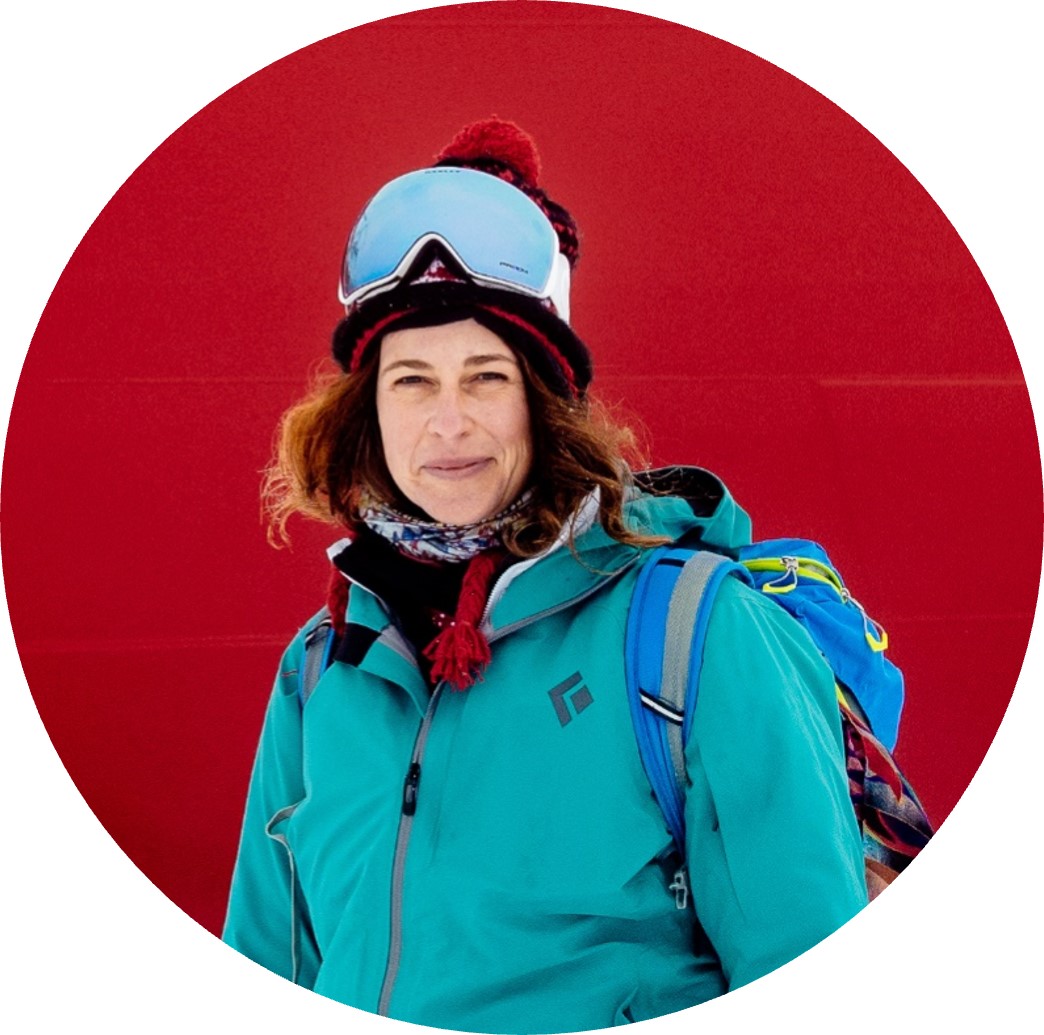 Prof Annie Bekker – Stellenbosch University
Prof Annie Bekker – Stellenbosch University
Professor in Engineering, Director of the Sound & Vibration Research Group, and currently on the international Endurance 22 expedition (Antarctica).
“My job is about applying maths and science to technology… discovering and searching for new things. It is sometimes difficult, it takes long hours, breakthroughs can be incremental… and many times the belief, momentum, and enthusiasm for success have to come from within myself… Today, I love my job and the hard work to this point is absolutely worth it. I could not get here without encouragement, love, and mentorship in key moments. I cannot continue without the support of my family, the example of my colleagues, or the curiosity of my students – their excellence and hunger for their own new frontiers of discovery.
This is your life. Invest in your education. Believe in yourself, try, try again, never give up. Be hungry to learn. Sharpen your skills. Absorb all that is positive around you. Find mentors. Accept responsibility. Rebound from failure. Celebrate success. Be brave. Dream”.
Check out the Sound & Vibraton Research Group website: svrg.sun.ac.za.
Read more about Annie’s work and adventures here.
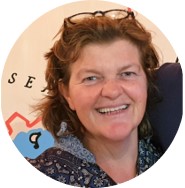 Prof Isabelle Ansorge – University of Cape Town
Prof Isabelle Ansorge – University of Cape Town
Head of the Oceanography Department at UCT and mastermind behind South Africa’s first class afloat – SEAmester.
Isabelle Ansorge is an observational oceanographer, Professor, and first female Head of the Oceanography Department at the University of Cape Town. Having built an observational oceanography career both nationally and internationally, Prof. Ansorge’s interests lie in Indian, Atlantic, and Southern Ocean dynamics that include Southern Ocean eddy transports of heat and salt, frontal dynamics, and variability in the Antarctic Circumpolar Current and its effects on Subantarctic Islands such as Marion Island. Another passion of Isabelle’s is the shipboard training of postgraduate students from all over South Africa and she is the mastermind behind the SEAmester Floating University programme. SEAmester provides an incredible teaching and research platform for South African early-career scientists and lecturers alike. Prof. Ansorge’s list of affiliations is a testament to her extensive experience in the field including being a committee member of the Scientific Committee on Antarctic Research (SCAR), as a member of the start-up committee for the Southern Ocean Observing System (SOOS), as an Executive Bureau Member of the International Union for Geodesy and Geophysics (IUGG) and formally the vice-president of the International Association for Physical Sciences of the Oceans (IAPSO).
Check out the SEAmester website: seamester.co.za.
Read more about Isabelle here.
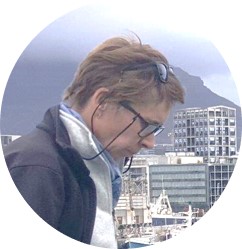 Prof Bettine van Vuuren – University of Johannesburg
Prof Bettine van Vuuren – University of Johannesburg
Professor of Zoology, Director of the Centre for Ecological Genomics and Wildlife Conservation, and Chair of the South African Committee for the Scientific Committee on Antarctic Research (SANC for SCAR).
“The first thing to say is that I believe there is nothing that any person can’t do if they apply their mind (and time) to it. We often set our own ceilings based on general beliefs that society or others impose on us, and it is crucial that we break through these (non-real) boundaries. STEM fields are a case in hand. This is especially true for women, who traditionally were seen as homemakers or child-carers. In STEM specifically, fields such as mathematics, physics, and engineering, and traditionally more field-based disciplines such as zoology, botany, or oceanography, are seen as more suited to men (either because women were not traditionally considered as analytically strong, capable to work in the field, or for that matter, be away from home for any period of time). It is critical that any person (both men and women) should carefully consider what they enjoy, what their specific strengths are (be that a STEM career for a woman, or as a childcarer/homemaker for a man), and then pursue that with all their strength and passion. Personally, I was initially directed into a field that I had no interest in (because I could not answer questions asked re where I would work if my husband lived in a small town), and from a personal perspective I strongly urge and support women that want to step out of the usual/ typical / what is expected from you by society and follow what they are passionate about”.
Follow Bettine on Twitter (Click here).
You can also visit her website: molzoolab.co.za.
Meet the SANC for SCAR committee here.
Read more about Bettine here.
Image of Prof Bekker supplied by: James-John Matthee.
Anche Louw, Antarctic Legacy of South Africa, 08 March 2022
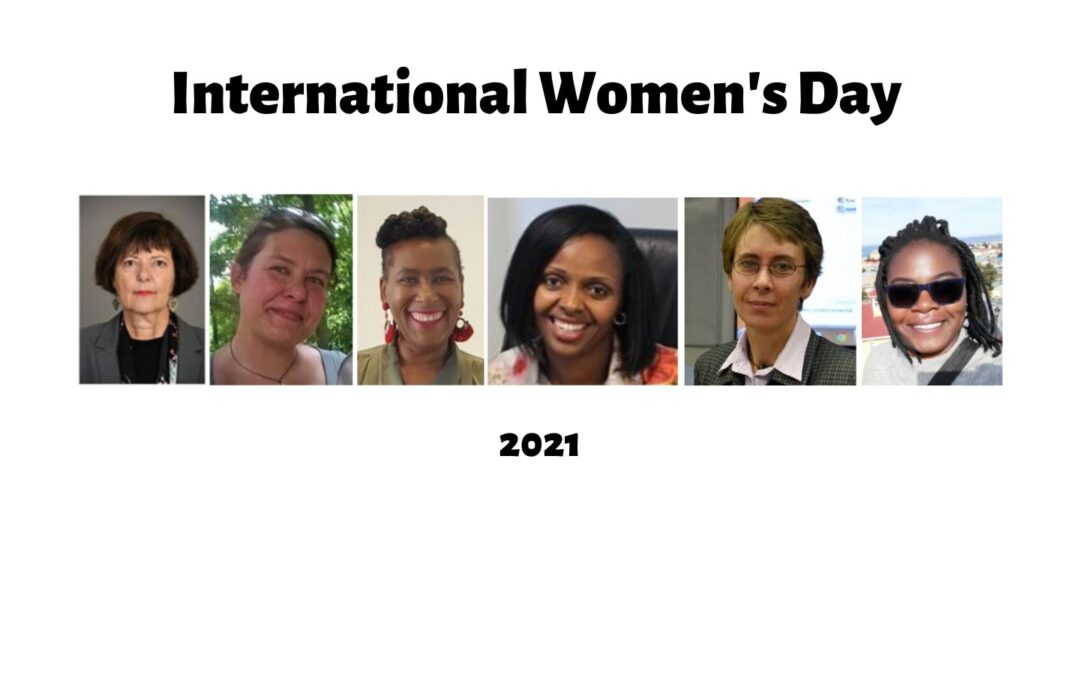
by Ria Olivier | Mar 8, 2021 | Announcement, Current Event, International Days, SANAP
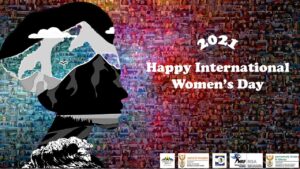 Today on International Women’s Day we are celebrating all those women involved within the South African National Antarctic Programme (SANAP). International Women’s Day is celebrated on 8 March of each year. 2021 Theme: “IWD 2021 campaign theme: #ChooseToChallenge; A challenged world is an alert world. Individually, we are all responsible for our own thoughts and actions – all day, every day. We can all choose to seek out and celebrate women’s achievements. Collectively we can help create an inclusive world. From challenge comes change, so let’s all choose to challenge.”
Today on International Women’s Day we are celebrating all those women involved within the South African National Antarctic Programme (SANAP). International Women’s Day is celebrated on 8 March of each year. 2021 Theme: “IWD 2021 campaign theme: #ChooseToChallenge; A challenged world is an alert world. Individually, we are all responsible for our own thoughts and actions – all day, every day. We can all choose to seek out and celebrate women’s achievements. Collectively we can help create an inclusive world. From challenge comes change, so let’s all choose to challenge.”

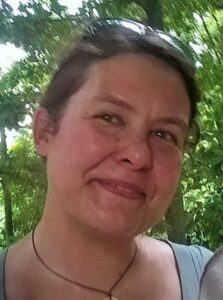
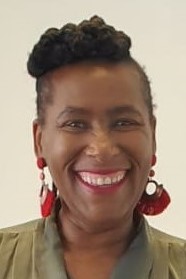
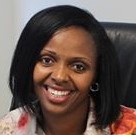 Within SANAP, women take on many roles. Throughout SANAP we find women in leadership positions which we celebrate; the Minister of Environment, Forestry and Fisheries, Minister Babara Creecy, the Director at Knowledge Advancement and Support (KAS) of the National Research Foundation Tracy Klarenbeek, Deputy Directors Kusi Ngxabani and Chuma Phamoli. (Above l-r: Min Creecy, Tracy Klarenbeek, ChumaPhamoli, Kusi Ngxabani)
Within SANAP, women take on many roles. Throughout SANAP we find women in leadership positions which we celebrate; the Minister of Environment, Forestry and Fisheries, Minister Babara Creecy, the Director at Knowledge Advancement and Support (KAS) of the National Research Foundation Tracy Klarenbeek, Deputy Directors Kusi Ngxabani and Chuma Phamoli. (Above l-r: Min Creecy, Tracy Klarenbeek, ChumaPhamoli, Kusi Ngxabani)
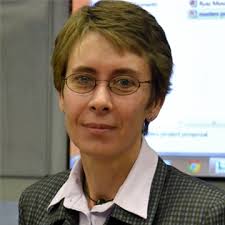
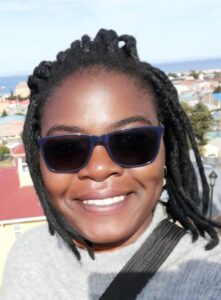 In the science environment there are many Principal Investigators and the chair for the National Committee of SCAR, Bettine van Vuuren(left). The Champion for the Antarctic Youth Coalition for Antarctic Gateway Cities is Rudzani Silima(right). There have been several students and other women over the past years within SANAP. See slideshow on ALSA Archive and Womens day 2020 on www.sanap.ac.za
In the science environment there are many Principal Investigators and the chair for the National Committee of SCAR, Bettine van Vuuren(left). The Champion for the Antarctic Youth Coalition for Antarctic Gateway Cities is Rudzani Silima(right). There have been several students and other women over the past years within SANAP. See slideshow on ALSA Archive and Womens day 2020 on www.sanap.ac.za
Cover Image : Tahlia Henry
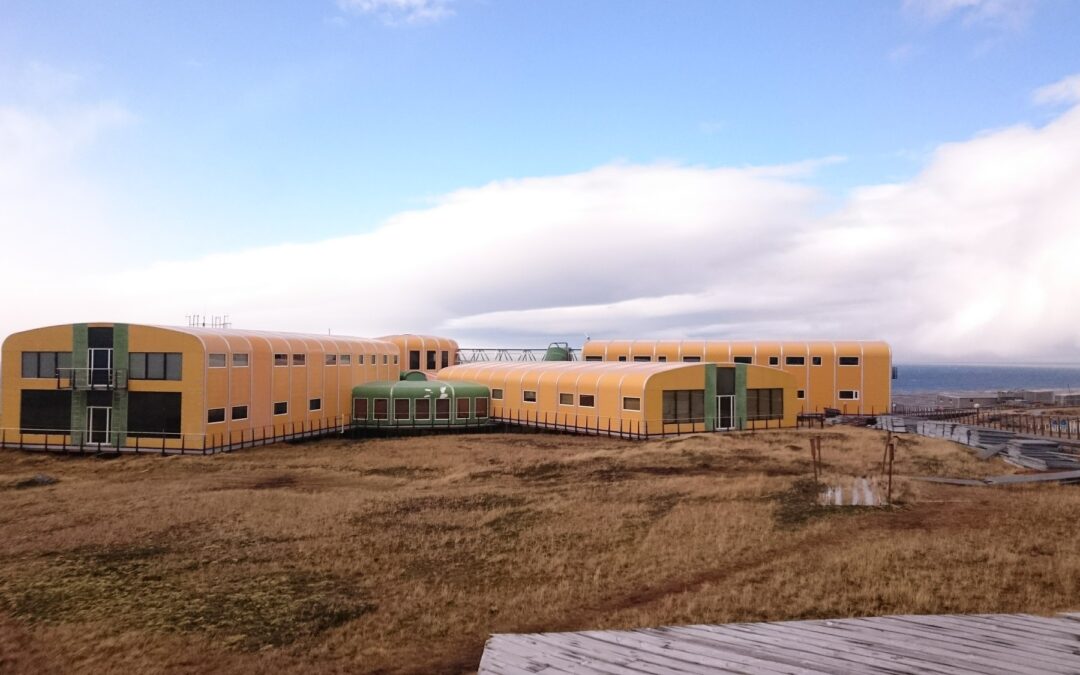
by Ria Olivier | Sep 18, 2020 | Announcement, Current Event, Environment, Marion Island
 Department of Environment Forestry and Fisheries Media Release: International wildlife documentary series to be filmed on Marion Island – 16 September 2020
Department of Environment Forestry and Fisheries Media Release: International wildlife documentary series to be filmed on Marion Island – 16 September 2020

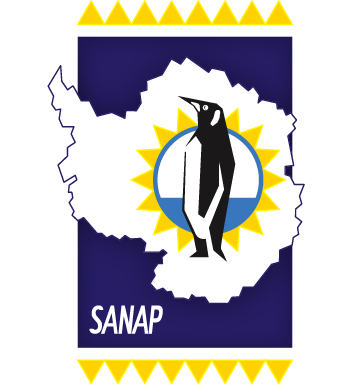














 Prof Annie Bekker – Stellenbosch University
Prof Annie Bekker – Stellenbosch University Prof Isabelle Ansorge – University of Cape Town
Prof Isabelle Ansorge – University of Cape Town Prof Bettine van Vuuren – University of Johannesburg
Prof Bettine van Vuuren – University of Johannesburg
 Today on International Women’s Day we are celebrating all those women involved within the South African National Antarctic Programme (SANAP).
Today on International Women’s Day we are celebrating all those women involved within the South African National Antarctic Programme (SANAP). 


 Within SANAP, women take on many roles. Throughout SANAP we find women in leadership positions which we celebrate; the Minister of Environment, Forestry and Fisheries, Minister Babara Creecy, the Director at Knowledge Advancement and Support (KAS) of the National Research Foundation Tracy Klarenbeek, Deputy Directors
Within SANAP, women take on many roles. Throughout SANAP we find women in leadership positions which we celebrate; the Minister of Environment, Forestry and Fisheries, Minister Babara Creecy, the Director at Knowledge Advancement and Support (KAS) of the National Research Foundation Tracy Klarenbeek, Deputy Directors 
 In the science environment there are many Principal Investigators and the chair for the
In the science environment there are many Principal Investigators and the chair for the 
 Department of Environment Forestry and Fisheries Media Release: International wildlife documentary series to be filmed on Marion Island – 16 September 2020
Department of Environment Forestry and Fisheries Media Release: International wildlife documentary series to be filmed on Marion Island – 16 September 2020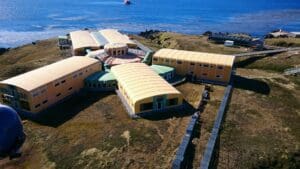 Following a rigorous approval process that involved key stakeholders, the Department of Environment, Forestry and Fisheries (DEFF) has approved a proposal by the United Kingdom (UK) based film and production company, Plimsoll Productions, to film a wildlife documentary series on Marion Island.
Following a rigorous approval process that involved key stakeholders, the Department of Environment, Forestry and Fisheries (DEFF) has approved a proposal by the United Kingdom (UK) based film and production company, Plimsoll Productions, to film a wildlife documentary series on Marion Island.
